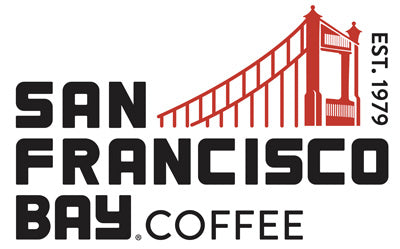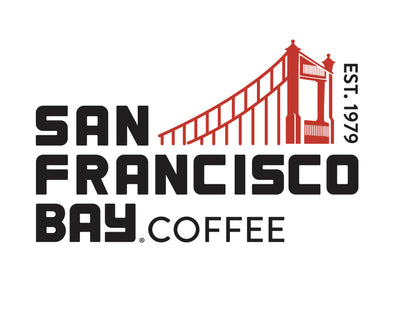How to Avoid Caffeine Crash: 7 Helpful Tips

When searching for the perfect cup of coffee to fuel your day, understanding how to avoid a caffeine crash becomes essential for maintaining consistent energy levels. When exploring San Francisco Bay Coffee's premium coffee collection, the right strategies can help you sidestep that dreaded afternoon energy slump that leaves you reaching for another cup or feeling sluggish for hours.
What is a Caffeine Crash?
A caffeine crash, also known as caffeine withdrawal or the "coffee comedown," occurs when your body experiences a sudden drop in energy levels as caffeine's stimulating effects wear off. Contrary to popular social media claims, recent research from the Journal of the International Society of Sports Nutrition reveals that there is no evidence that caffeine ingestion upon waking is responsible for an afternoon "crash" or that delaying consumption would somehow prevent this if it did occur.
Understanding how to avoid a caffeine crash starts with recognizing that this phenomenon isn't necessarily caused by when you drink your coffee but rather by how your body processes caffeine and maintains energy balance throughout the day. The crash typically occurs 3-6 hours after consumption when caffeine levels in your bloodstream begin to decline significantly.
Scientific Fact: According to a study published in the Journal of Sleep Research on adenosine and sleep-wake regulation, caffeine blocks adenosine receptors in the brain, temporarily masking feelings of fatigue. When caffeine is metabolized and cleared from these receptors, the accumulated adenosine can create a rebound effect of tiredness.
Common Symptoms of a Caffeine Crash
Recognizing the warning signs helps you understand when you're experiencing a caffeine crash versus normal energy fluctuations. Learning how to avoid caffeine crash becomes easier when you can identify these common symptoms:
• Fatigue and drowsiness: Often the most noticeable symptom
• Irritability and mood changes: Feeling grumpy or easily frustrated
• Difficulty concentrating: Brain fog and reduced mental clarity
• Headaches: Ranging from mild to moderate intensity
• Sugar cravings: Your body seeks quick energy sources
• Anxiety or jitters: Paradoxically, some people feel both tired and restless
These symptoms can significantly impact your productivity and overall well-being. For those who enjoy our specialty coffee blends, understanding these patterns helps optimize your coffee experience throughout the day.
Research Insight: The International Society of Sports Nutrition study indicated that regular caffeine consumers develop tolerance, with habitual users showing blunted cortisol responses to caffeine intake. Your daily coffee routine may cause less physiological stress than occasional consumption.
How to Avoid Caffeine Crash
Don't Drink Coffee on an Empty Stomach

Starting your day with coffee before eating can spike your blood sugar and intensify the eventual crash. Avoiding a caffeine crash begins with proper nutrition timing. When you consume caffeine without food, your body absorbs it more rapidly, leading to a quicker and dramatic energy peak followed by a steeper decline.
Pair your morning coffee with protein-rich foods like eggs, Greek yogurt, or nuts to slow caffeine absorption and provide sustained energy.
Stay Properly Hydrated
Dehydration compounds fatigue and can make caffeine crashes feel more severe. The research completed by the International Society of Sports Nutrition found that moderate daily caffeine doses (approximately 250-300 mg) do not significantly impact hydration in regular coffee drinkers. You would need to drink more than 500 mg of caffeine to see an impact on hydration levels in the body. However, avoiding a caffeine crash includes maintaining adequate daily water intake, as afternoon fatigue is typically more associated with dehydration than caffeine withdrawal. Most people just aren’t drinking enough water and will often mask their natural thirst by reaching for a caffeinated beverage instead of a glass of water.
Aim to drink water between refilling your coffee cup and consider a 1:1 water-to-coffee consumption ratio.
Eat Balanced, Regular Meals
Stable blood sugar levels are crucial for sustained energy. To avoid a caffeine crash, eat balanced meals containing complex carbohydrates, healthy fats, and lean proteins every 3-4 hours.
Avoid sugary snacks that can create an energy rollercoaster, compounding the effects of caffeine metabolism.
Time Your Caffeine Strategically
While delaying morning coffee doesn't prevent afternoon crashes as social media suggests, strategic timing can help. Consider spacing out smaller doses throughout the day rather than consuming large amounts first thing in the morning.
Most experts recommend avoiding caffeine after 2 PM to prevent sleep disruption, which can worsen next-day fatigue.
Choose Quality Coffee Sources
The type and quality of your coffee can impact how your body processes caffeine. Single-origin, freshly roasted beans often provide a smoother caffeine experience than highly processed alternatives.
The type and quality of your coffee can impact how your body processes caffeine. Premium coffee blends crafted with carefully selected beans provide a smoother caffeine experience than mass-produced alternatives. Quality roasting and expert blending create consistent flavor profiles that deliver steady energy without harsh spikes.
Get Adequate Sleep
Poor sleep quality increases your reliance on caffeine and makes crashes more likely. Prioritize nightly 7-9 hours of quality sleep to reduce your body's dependence on external stimulants.
Research shows that sleep deprivation alters adenosine recovery patterns, making caffeine less effective and crashes more severe.
Consider Gradual Reduction if Needed
If you're experiencing frequent crashes, gradually reducing your overall caffeine intake by 25mg every few days can help reset your tolerance without triggering withdrawal symptoms. It can also give you space to focus on other essential factors like nutrition and hydration that affect your overall energy level.
For comprehensive strategies on optimizing your coffee experience, the National Sleep Foundation provides additional evidence-based recommendations for caffeine timing and sleep health.
Key Takeaway: The most effective approach to avoiding caffeine crashes involves consistent habits around nutrition, hydration, sleep, and strategic caffeine consumption rather than complex timing protocols.
Explore Our Caffeinated and Decaf Coffee Varieties

Ready to optimize your coffee experience? San Francisco Bay Coffee offers an extensive selection of premium blends designed to provide sustained energy. Each variety, from our smooth breakfast blends to our bold dark roasts, is carefully crafted to deliver consistent flavor and energy.
Discover your perfect coffee match - which of our artisan coffee collections will become your new daily ritual?



